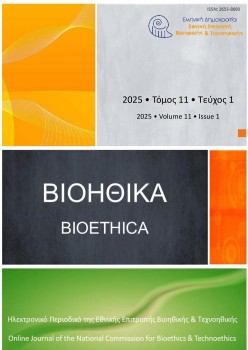The best interests of the child in same-sex couples’ procedures for obtaining children

Abstract
The International Convention on the Rights of the Child mandates that the best interests of the child should be the primary consideration in all decisions affecting them. A key principle of the Convention is non-discrimination, ensuring that children are not discriminated against based on their parents' sexual orientation. States must ensure that children of same-sex families receive equal treatment to those of heterosexual families by enacting legislation that protects their rights. Recognizing and safeguarding the rights of these children contributes to creating a society free from discrimination and prejudice. Regarding the rights of embryos, laws vary by country concerning the recognition of their personhood. Embryo protection should not override women's rights. The embryo is indirectly protected through the mother and is not considered a full person. The viability criterion is significant as it determines the embryo's ability to live independently without granting it full legal protection as a person.
Article Details
- How to Cite
-
Lyakh, K. (2025). The best interests of the child in same-sex couples’ procedures for obtaining children. Bioethica, 11(1), 5–20. https://doi.org/10.12681/bioeth.40928
- Section
- Original Articles

This work is licensed under a Creative Commons Attribution 4.0 International License.
Authors who publish with this journal agree to the following terms:
- Authors retain copyright and grant the journal right of first publication with the work simultaneously licensed under a Creative Commons Attribution CC BY 4.0 License, which allows for immediate free access to the work and permits any user to read, download, copy, distribute, print, search, or link to the full texts of articles, crawl them for indexing, pass them as data to software, or use them for any other lawful purpose. Appropriate credit must be given by citing the author(s) and the original publication in this journal.
- Authors are able to enter into separate, additional contractual arrangements for the non-exclusive distribution of the journal's published version of the work (e.g. post it to an institutional repository or publish it in a book), with an acknowledgement of its initial publication in this journal.
We encourage authors to deposit their articles, as well as data underlying the publications, in institutional and/or other appropriate subject repositories.
Bioethica permits and encourages authors to archive the final publication pdf in institutional (e.g. the repository of the National Hellenic Research Foundation) or other appropriate subject repositories (e.g. SSOAR repository for social sciences), in compliance with institutional and/or funder open access policies, after publication in the BIOETHICA. Authors must provide bibliographic details that credit publication in the journal, as well as related funding details (when applicable).
Lists of institutional and other subject-based academic open access repositories can be found listed by country at the registry http://opendoar.org/countrylist.php
If your institution does not possess a repository you may deposit a copy of your paper at no cost with www.zenodo.org , the repository supported for open access research in the EU by the European Commission, through the project OpenAIRE (www.openaire.eu )


